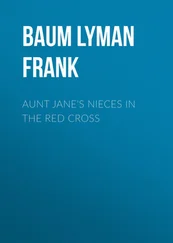Clara Barton - A Story of the Red Cross; Glimpses of Field Work
Здесь есть возможность читать онлайн «Clara Barton - A Story of the Red Cross; Glimpses of Field Work» — ознакомительный отрывок электронной книги совершенно бесплатно, а после прочтения отрывка купить полную версию. В некоторых случаях можно слушать аудио, скачать через торрент в формате fb2 и присутствует краткое содержание. Жанр: foreign_antique, foreign_prose, на английском языке. Описание произведения, (предисловие) а так же отзывы посетителей доступны на портале библиотеки ЛибКат.
- Название:A Story of the Red Cross; Glimpses of Field Work
- Автор:
- Жанр:
- Год:неизвестен
- ISBN:нет данных
- Рейтинг книги:4 / 5. Голосов: 1
-
Избранное:Добавить в избранное
- Отзывы:
-
Ваша оценка:
- 80
- 1
- 2
- 3
- 4
- 5
A Story of the Red Cross; Glimpses of Field Work: краткое содержание, описание и аннотация
Предлагаем к чтению аннотацию, описание, краткое содержание или предисловие (зависит от того, что написал сам автор книги «A Story of the Red Cross; Glimpses of Field Work»). Если вы не нашли необходимую информацию о книге — напишите в комментариях, мы постараемся отыскать её.
A Story of the Red Cross; Glimpses of Field Work — читать онлайн ознакомительный отрывок
Ниже представлен текст книги, разбитый по страницам. Система сохранения места последней прочитанной страницы, позволяет с удобством читать онлайн бесплатно книгу «A Story of the Red Cross; Glimpses of Field Work», без необходимости каждый раз заново искать на чём Вы остановились. Поставьте закладку, и сможете в любой момент перейти на страницу, на которой закончили чтение.
Интервал:
Закладка:
In February, 1888, occurred the Mt. Vernon, Ill., cyclone, cutting a broad swath through one-half of the beautiful county-seat, tearing down all heavy buildings, picking up the lighter ones and sweeping them along like cardboard.
In three minutes the work of destruction was over. Ten minutes later the sun shone out brightly over the ruins of the town, the wails of the maimed and dying, and the lifeless bodies of the dead.
Fires broke out on every hand, and the victims pinned down under the wreckage were subjects for the flames. Appeals for assistance went out, but by unfortunate press representation failed to arouse the public, till after several days, when we were reached, through their representative in Congress, begging that in mercy we go to them. We arrived in the night, found homes destroyed, hospitals full, scant medical care, few nurses, food scarce and no money, a relief committee of excellent men, but little to distribute.
At daylight we looked over the situation and sent this simple message to the Associated Press:
"The pitiless snow is falling on the heads of three thousand people, who are without homes, without food or clothing, and without money.
"American National Red Cross, "Clara Barton, President."This was all. We assisted their relief committee to arrange for the receipt and distribution of funds, sent for experienced helpers to take charge of supplies, to distribute clothing, and aid the hospital service. We remained two weeks, and left them with more supplies than they knew how to distribute, and the Citizens' Committee, with accumulating cash in its treasury of ninety thousand dollars, full of hope, life, and a gratitude they could not speak.
As in the Texas famine, we paid our own expenses and no dollar but our own had passed our hands. We were only glad to do this, in the hope that we were building up an institution of self-help of the people, that would one day win its way to their favor and aid.
III
YELLOW FEVER IN FLORIDA
During the same year the yellow fever broke out in Jacksonville, Fla., and was declared epidemic in September.
An arrangement had been made between the National Association and the Auxiliary Society of the Red Cross of New Orleans, which society embraced the famous old "Howard Association," that, in case of an outbreak of yellow fever, they would send their immune nurses from the South, and we of the North would supply the money to support and pay them.
This arrangement was carried out so far as could be, under the very natural differences of a medical department of active, professional men, taking up the treatment of an epidemic of which they knew very little experimentally, but filled with the enthusiasm of science and hope, and the unprofessional, fearless, easy-going gait of the old Southern nurses, white and black, whose whole lives had been spent in just that work.
The Red Cross sent no Northern nurses. But eighteen or twenty "Howard nurses," mainly colored, went out from New Orleans under charge of Col. Fred. F. Southmayd, their leader of twenty years in epidemics. A part of his nurses were stationed at Macclenny, and a part went on to Jacksonville. Under medical direction of their noted "yellow fever doctor" – a tall Norwegian – Dr. Gill, they did their faithful work and won their meed of grateful praise.
Our place was in Washington, to receive, deal carefully with, and hold back the tide of offered service from the hundreds of enthusiastic, excited untrained volunteers, rushing on to danger and death. Their fearless ignorance was a pitiful lesson. In all the hundreds there was scarcely one who had ever seen a case of yellow fever, but all were sure they were proof against it. Only three passed us, and two of these had the fever in Jacksonville.
When the scourge was ended we met our nurses personally at Camp Perry, paid and sent them back to New Orleans. All that are living are at our service still, faithful and true.
During the fourth week in November a dispatch to national headquarters announced that the last band of Red Cross nurses, known as the "Macclenny Nurses," had finished their work at Enterprise, and would come into Camp Perry to wait their ten days' quarantine and go home to New Orleans for Thanksgiving.
That would mean that seventy-nine days ago their little company of eighteen, mainly women, steaming on to Jacksonville, under guidance of their old-time trusted leader, Southmayd, of New Orleans, listened to his announcement that the town of Macclenny, thirty-eight miles from Jacksonville, Fla., and through which they would soon pass, was in a fearful state of distress; a comparatively new town, of a few thousand, largely Northern and Western people, suddenly-stricken down in scores; poor, helpless, physicians all ill, and no nurses; quarantined on all sides, no food, medicine, nor comforts for sick or well.
"Nurses, shall I leave a part of you there; the train can not stop in, nor near the town, but if I can manage to get it slowed up somewhere, will you jump?"
"We will do anything you say, colonel; we are here in God's name and service to help His people; for Him, for you, and for the Red Cross, we will do our best and our all."
"Conductor, you had a hot box a few miles back; don't you think it should be looked to after passing Macclenny?"
"I will slow up and have it seen to, colonel, although it may cost me my official head." And it did.
One mile beyond town, the rain pouring in torrents, the ground soaked, slippery, and caving, out into pitchy darkness, leaped three men and seven women from a puffing, unsteady train, no physician with them, and no instructions save the charge of their leader as the last leap was made, and the train pushed on: "Nurses, you know what to do; go and do your best, and God help you." Hand to hand, that none go astray in the darkness, they hobbled back over a mile of slippery cross-ties to the stricken town. Shelter was found, the wet clothes dried, and at midnight the sick had been parceled out, each nurse had his or her quota of patients, and were in for the issue, be it life or death. Those past all help must be seen through, and lost, all that could be must be saved. The next day a dispatch from Southmayd went back to New Orleans for Dr. Gill to come and take charge of the sick and the nurses at Macclenny. It was done, and under his wise direction they found again a leader. Their labors and successes are matters for later and more extended record.
It is to be borne in mind that these nurses found no general table, no table at all but such as they could provide, find the food for, and cook for themselves, for the sick, the children, and the old and helpless who had escaped the fever and must be cared for. No patient could be left till the crisis was passed, and many are their records of seventy-two hours without change or sleep or scarcely sitting down. As the disease gradually succumbed to their watchful care, experience, and skill, they reached out to other freshly attacked towns and hamlets. Sanderson and Glen St. Mary's became their charge, and return their blessings for lives preserved.
On November 1st it was thought they could safely leave and go into camp for quarantine; but no regular train would be permitted to take them. The Red Cross secured and paid a special train for them, and, as if in bold relief against the manner of their entry seven weeks before, the entire town, saving its invalids, was assembled at the station at seven o'clock in the morning to bid them good-by and God speed.
But their fame had gone before them, and "Enterprise," a hundred miles below, just stricken down among its flowers and fruits, reached out its hands for aid, and with one accord, after two days in camp, all turned back from the coveted home and needed rest and added another month of toil to their already weary record. At length this was ended, and word came again to us that they would go into quarantine. Their unselfish, faithful, and successful record demanded something more than the mere sending of money. It deserved the thanks of the Red Cross organization in the best and highest manner in which they could be bestowed; it was decided that its President, in person, should most fittingly do this, and I accordingly left Washington on the morning of November 22d in company with Dr. Hubbell, field agent, for Camp Perry, the quarantine station of Florida. Two days and one night by rail, a few miles across country by wagon, where trains were forbidden to stop, and another mile or so over the trestles of St. Mary's on a dirt car with the workmen, brought us into camp as the evening fires were lighted and the bugle sounded supper. The genial surgeon in charge, Dr. Hutton, who carried a knapsack and musket in an Illinois regiment in '62, met us cordially and extended every possible hospitality. Soon there filed past us to supper the tall doctor and his little flock; some light and fair-skinned, with the easy step of a well-bred lady, others dark and bony-handed, but the strong, kind faces below the turbans told at a glance that you could trust your life there and find it again. They were not disturbed that night, and no certain information of our arrival got among them. It was cold and windy, and the evening short, as nine o'clock brought taps and lights out. In spite of all caution the news of our coming had spread over the surrounding country, and telegrams bringing both thanks for what had been received and the needs for more, came from all sides, and the good Mayor of Macclenny made his troubled way to reach and greet us in person, and take again the faithful hands that had served and saved his people.
Читать дальшеИнтервал:
Закладка:
Похожие книги на «A Story of the Red Cross; Glimpses of Field Work»
Представляем Вашему вниманию похожие книги на «A Story of the Red Cross; Glimpses of Field Work» списком для выбора. Мы отобрали схожую по названию и смыслу литературу в надежде предоставить читателям больше вариантов отыскать новые, интересные, ещё непрочитанные произведения.
Обсуждение, отзывы о книге «A Story of the Red Cross; Glimpses of Field Work» и просто собственные мнения читателей. Оставьте ваши комментарии, напишите, что Вы думаете о произведении, его смысле или главных героях. Укажите что конкретно понравилось, а что нет, и почему Вы так считаете.












